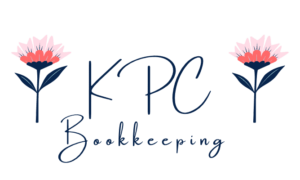Last week I revealed 4 of 8 strategies for managing your business debt. We talked about getting a clear picture of your debt, tackling high interest loans first, looking into debt consolidation, and negotiating with your lenders. Now let’s talk about 4 more strategies.
5. Improve Your Cash Flow Management
Debt repayment becomes much easier when your cash flow is healthy. Here are a few tips to improve it:
- Speed up receivables: Encourage customers to pay earlier by offering small discounts for early payments.
- Delay payables: Take full advantage of payment grace periods with your vendors, as long as you avoid late fees.
- Trim unnecessary costs: Review your expenses regularly and cut anything that’s not absolutely essential.
Good cash flow gives you breathing room to stay on top of debt payments without putting a strain on your daily operations.
6. Consider Refinancing Your Debt
If interest rates have dropped since you took out your loan, or your business’s credit score has improved, refinancing could be a smart move. By refinancing, you can replace your existing debt with a new one at a lower rate, which means less interest to pay.
This can free up extra cash flow, reduce overall debt costs, and make your debt more manageable.
7. Create a Realistic Repayment Plan
A solid repayment plan can be a game-changer. Set a realistic schedule based on your business’s cash flow and stick to it. Allocate a set percentage of your monthly revenue toward debt repayment, treating it as a non-negotiable expense.
Also, don’t forget to build an emergency fund. Having three to six months of operating expenses set aside can help keep you afloat when cash flow dips unexpectedly.
8. Get Professional Help if Needed
If you’re feeling overwhelmed, it might be time to call in a professional. A business accountant or financial advisor can take a look at your situation and help you develop a tailored plan to manage your debt.
There are also business advisory firms that can negotiate with creditors on your behalf or offer specialized debt restructuring services.
Final Thoughts
Managing business debt can be stressful, but it doesn’t have to ruin your life. With a clear understanding of what you owe, smart strategies for repayment, and a focus on improving cash flow, you can keep your debt in check. Remember, debt is a tool—when used responsibly, it can help your business grow. But like any tool, it needs to be handled carefully.
Take a proactive approach, stay organized, and don’t hesitate to ask for help if you need it. By staying on top of your debt, you’ll keep your business on a solid financial footing and open up new opportunities for growth.
